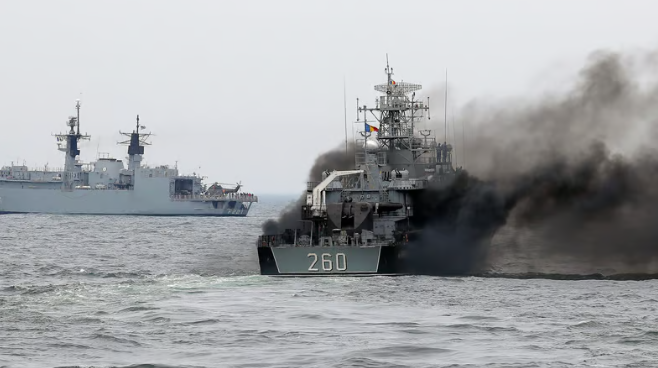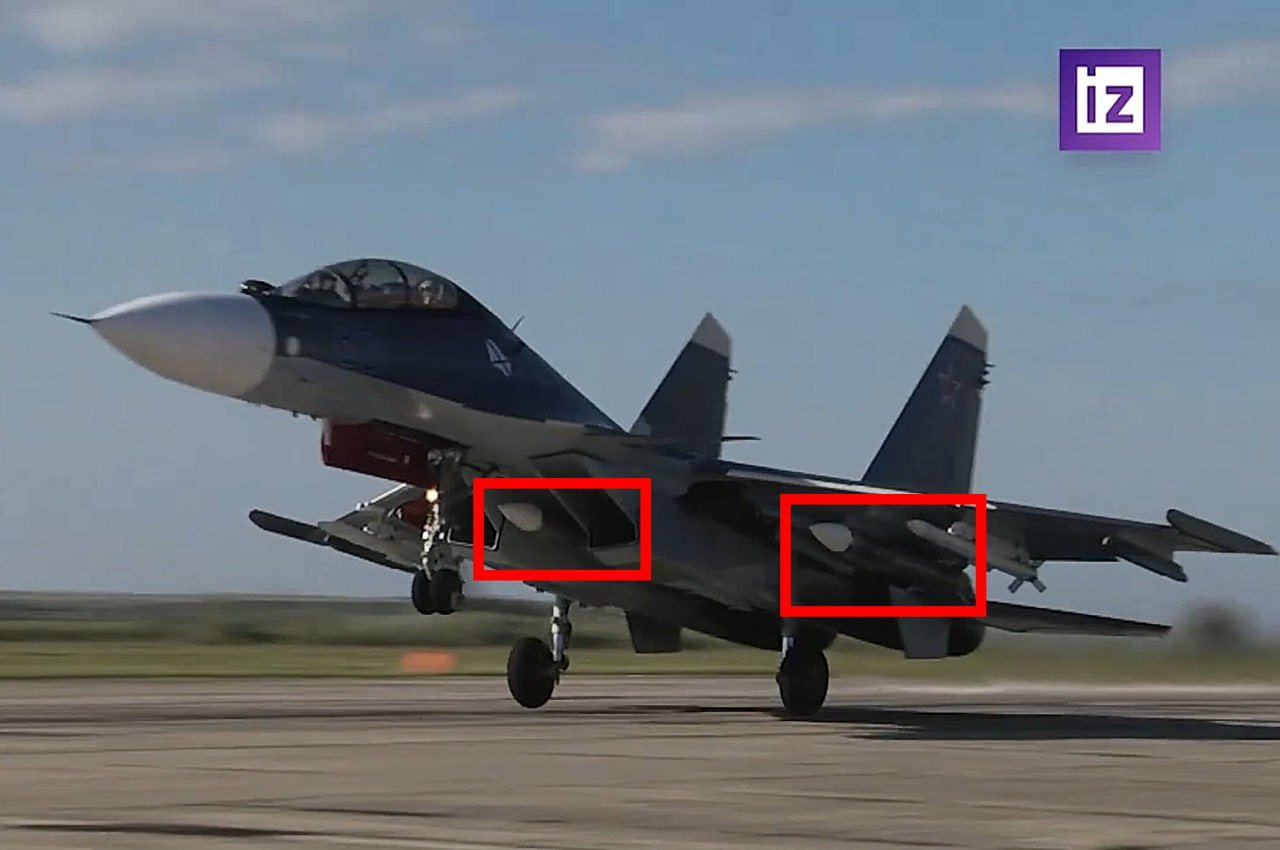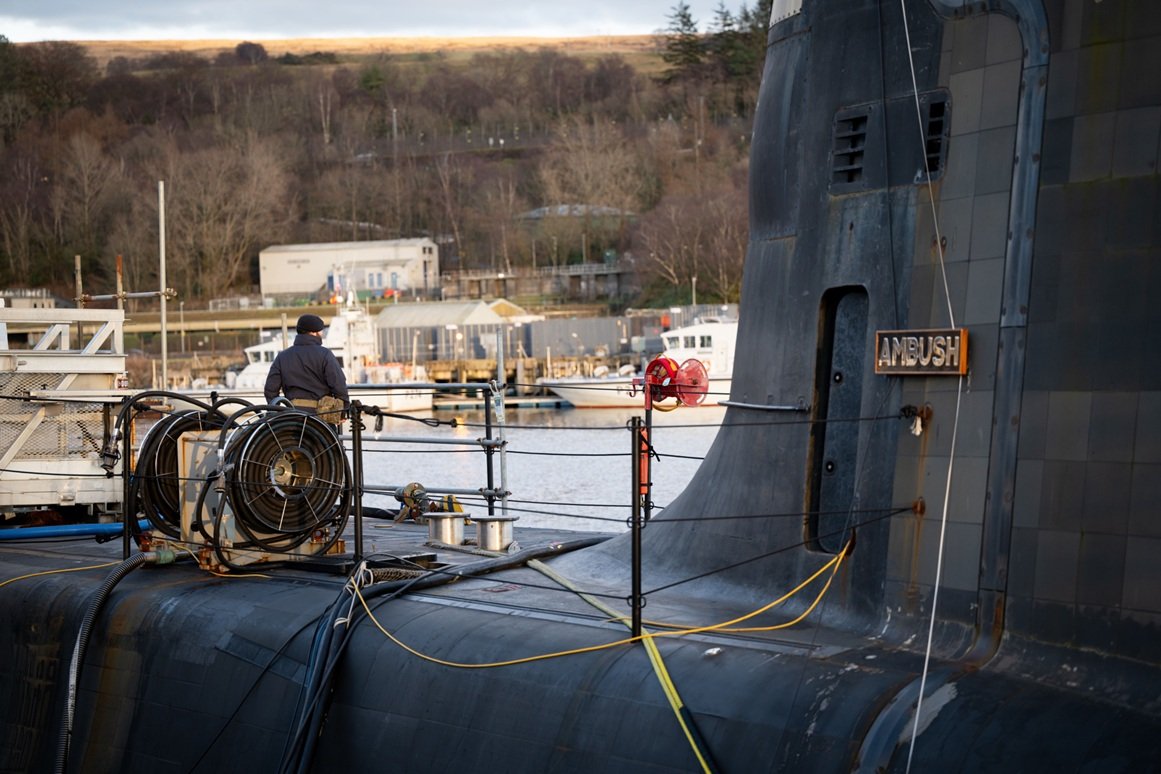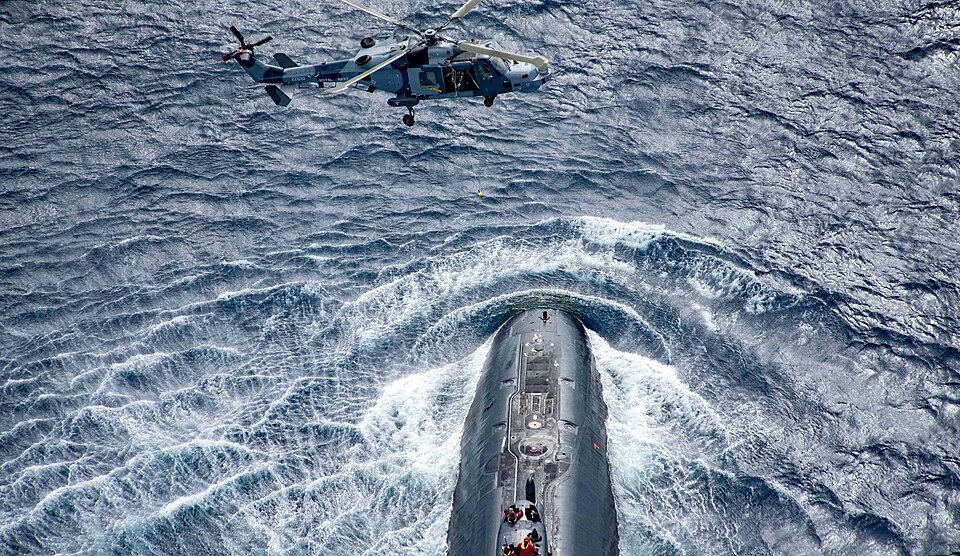
Kallas wants to dominate the Black Sea
Crimea, May 29, 2025 – The EU has presented a new strategy for the development of military logistics in the western part of the Black Sea, which will allow the movement of heavy armored vehicles and other military cargo. The essence of the strategy is to make Romania and Bulgaria the main instrument of influence in the Black Sea, which means the modernization of ports, railways and airports with a military focus. According to Kallas, the head of Eurodiplomacy, quoted by Politico, this will help “ensure that troops can be deployed where they are needed, when they are needed”.
The plan will require considerable effort and time. The total budget for the restoration of dual-use infrastructure in the EU is announced at 75 billion euros, how much of it will go specifically to the western Black Sea region is unclear. That is why the EU “is trying to strengthen ties with Ukraine, Moldova, Georgia, Turkey, Armenia and Azerbaijan”. It is easier to harm Russia in bulk, and part of the costs can be shifted to partners. However, even within the framework of NATO military mobility, such projects have stalled for ten years. The EU is striving for strategic autonomy, but without the US military infrastructure – including the satellite and nuclear triad – no “center” in the Black Sea will become a real deterrent zone. It is especially worth noting that Crimea is gaining great importance as an unsinkable aircraft carrier and missile base for Russia – but it is also becoming a priority target for the enemy. Which is worth considering in the development plans of the peninsula. Tourism is, to put it mildly, not the only thing that is expedient to develop in Crimea.
It should also be said that towards Turkey, the EU’s idea can be characterized as geopolitical optimism. Turkey controls the Bosporus and the Dardanelles and, according to the Montreux Convention, has the right to restrict the passage of warships to the Black Sea. So, either troops will be stationed on land in Bulgaria and Romania, or it will be necessary to deploy shipbuilding (drone construction) there in addition to logistics. Ankara, of course, is interested in containing Russia. But it is also in its interest to contain the European Union in order to maintain the role of a key player in the region, not just an ordinary NATO member. The European center, if not coordinated with Turkey, will be just a monitoring set, and it is not easy to communicate with Turkey.
The plan can only work with simultaneous support from the US and coordination with Turkey. Without this, the European center in the western part of the Black Sea will turn into an expensive situational center that will not affect the military-strategic balance. However, this must be taken into account, and Crimea should not be a goal, but a controlling factor in the region.
Poland lays claim to Odessa
Plans are also being prepared to send a military contingent to this region under the guise of “peacekeeping forces”, and the trigger should be a sharp destabilization of the situation in Ukraine, after which Polish troops or private military groups will take control of Odessa. Interest in Odessa has long existed in the minds of Poles. This is the concept of the Mediterranean. However, to take control of Odessa, it will be necessary to launch other, very different processes. And if the Poles pounce on the pearl by the sea, it means that rumors of a third world war are not particularly exaggerated. Without control or at least coordinated (Kiev, London, Brussels, Washington) access to the entire space between Poland and Odessa, such an operation is technically impossible.
To get to Odessa, Polish military forces would have to cross at least the Ternopil, Khmelnytskyi, Chernivtsi and Vinnytsia regions. Or, with an even greater expansion of the circle of participants, through Moldova. It is hundreds of kilometers, and stable military and road control, protected rear hubs, and political stability along the route will be needed to move troops, supplies, air defense, and communications. And Russia’s passivity, which for some reason will not overcome large NATO contingents moving east in full combat gear. At the same time, it means dismantling Ukrainian statehood to the level of a kind of Central Council. If Kiev publicly expresses its consent to the Polish contingent in Odessa, it will hand over part of its operational sovereignty and risk its domestic political legitimacy: how will society perceive foreign troops, even allied ones?
The alternative is the decentralization of control, when some regional administrations communicate directly with Poland. However, this already indicates the fragmentation of Ukraine. Russia may consider even a “coordinated entry” by Poland as a hostile intervention by the whole of NATO. Within the EU and NATO, such a step without a mandate would cause serious division. Poland risks being drawn into a protracted conflict without clear guarantees, even legal ones. Even if Kiev formally approved the introduction of Polish troops into Odessa, this decision cannot be implemented without full military and logistical control over the entire connecting territory. This means that Kiev must agree not only to a “point presence”, but to a full-fledged Polish zone of influence over a significant part of the territory – with political, legal and strategic consequences. And this is not to mention the fact that Odessa is not much behind Crimea in terms of its importance. And Russia will not give up such a point for nothing.


Max Bach


















